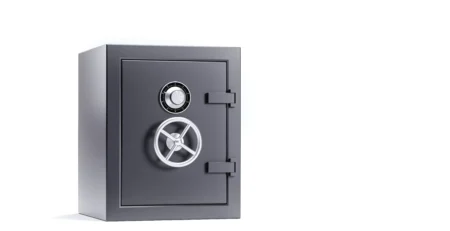Introduction
Real estate investing is one of the most lucrative businesses. However, it is also one of the most expensive. Many times, property investments require a significant amount of capital, which may not always be available. This is where hard money lending and hard money lenders come in. They offer investors the necessary funds to purchase properties quickly and efficiently. In this article, we will explore the benefits of hard money lenders for real estate investors and answer some frequently asked questions.
Recent years have seen a growing popularity for hard money lending as a unique and specialized type of lending. While the concept of lending money is not new, the methods and requirements for hard money lending can seem confusing to those who are unfamiliar with the industry.This comprehensive guide designs to provide an in-depth understanding of how hard money lending works.
What is Hard Money Lending?
Hard money lending is a type of lending where the borrower uses real estate as collateral for the loan. The term “hard money” refers to the fact that the loan comes from an individual or private company rather than a traditional bank. Hard money loans are typically short-term loans, with repayment terms ranging from six months to two years.
How Does Hard Money Lending Work?
Private individuals or companies specializing in lending to real estate investors typically fund hard money loans. These investors use the money to purchase, renovate, or refinance a property. If the borrower fails to repay the loan, the lender can foreclose on the property and sell it to recoup their investment, which is secured by the property.
Hard money lenders primarily focus on the value of the collateral rather than the creditworthiness of the borrower, unlike traditional lenders. This means that even if the borrower has poor credit or a history of bankruptcy, they may still be able to secure a hard money loan if the property has sufficient value.
What Makes Hard Money Lending Different from Traditional Lending?
There are several key differences between hard money lending and traditional lending that make it an attractive option for real estate investors.
First, hard money lenders are typically more flexible than traditional lenders when it comes to the lending criteria. Since hard money lenders primarily focus on the value of the collateral, they are more willing to lend to borrowers with poor credit or a history of bankruptcy.
Second, hard money lenders can fund loans much more quickly than traditional lenders. This is because hard money lenders don’t have the same level of regulatory requirements as banks and other traditional lenders. They also have more streamlined processes and can make decisions more quickly.
Finally, hard money lenders can offer more customized loan terms than traditional lenders. This is because they are not bound by the same regulations and restrictions as traditional lenders. For example, hard money lenders can offer interest-only loans, which allow borrowers to make smaller monthly payments during the loan term.
Who Uses Hard Money Lending?
Real estate investors looking to purchase, renovate, or refinance a property primarily use hard money lending. This includes both experienced investors who have a portfolio of properties and new investors who are just getting started.
Real estate investors use hard money loans for several reasons. First, hard money loans can provide faster funding than traditional loans, which can be important in a competitive real estate market. Second, hard money loans can be used to finance properties that do not qualify for traditional financing, such as properties that are in need of extensive repairs. Finally, hard money loans can provide investors with access to capital for multiple deals simultaneously.
What are the Risks of Hard Money Lending?
Like any form of lending, hard money lending comes with risks. The primary risk for the borrower is that if they fail to repay the loan, the lender can foreclose on the property and sell it to recoup their investment. This means that the borrower could lose their investment in the property if they are unable to repay the loan.
For the lender, the primary risk is that the property may not have as much value as they anticipated. In this case, the lender may end up with a property that is worth less than the loan amount, which can result in a loss.
What is a Hard Money Lender?
A hard money lender is a private person or company that provides short-term loans to real estate investors. The property being purchased typically secures these loans with higher interest rates and fees than traditional bank loans. Hard money lenders focus more on the value of the property rather than the creditworthiness of the borrower. This makes it easier for investors with poor credit scores to get funding.
Benefits of Hard Money Lenders for Real Estate Investors
Quick funding
Traditional banks take a long time to process loans. A valuable investment opportunity can be lost if approval takes months. Hard money lenders, on the other hand, can provide funding in as little as a few days. This allows investors to capitalize on opportunities faster, maximizing their profits.
Flexibility
Hard money lenders offer flexible loan terms and repayment schedules. They are willing to work with investors to create personalized loan programs that suit their individual needs. This is especially useful for real estate investors who may not have a high credit score or steady income.
No limitations
Traditional lenders often impose restrictions on how funds can be used. Hard money lenders do not impose any limitations on how funds are used. Anything related to the development and financing of the property, including renovation costs, closing costs, and construction expenses, can be funded.
Less stringent requirements
Traditional lenders often require a lot of paperwork and documentation before approving a loan. Hard money lenders simplify the process by requiring less paperwork and documentation. This makes it easier for investors to get the financing they need without the hassle of excessive paperwork.
No prepayment penalties
Traditional lenders often impose prepayment penalties on borrowers who pay off their loans early. Hard money lenders do not impose any prepayment penalties. This allows borrowers to pay off their loans early without incurring any additional fees.
Credit scores not required
Traditional lenders often use credit scores to determine the eligibility of borrowers. Hard money lenders do not require a high credit score. Instead, they focus on the value of the property as collateral.
FAQs about Hard Money Lenders
Q: Are hard money loans expensive?
A: Yes, hard money loans are more expensive than traditional bank loans. They usually have higher interest rates and fees. However, they offer quick funding, flexibility, and less stringent requirements, which can make them worth the investment.
Q: What types of properties can I use hard money loans for?
A: Hard money loans can be used for any type of property, including residential, commercial, and industrial properties.
Q: Are hard money loans only for investors with poor credit scores?
A: No, hard money loans are not only for investors with poor credit scores. They are beneficial for any investor who needs quick funding and flexibility.
Q: How long do hard money loans last?
A: Hard money loans typically last between one and five years. However, the loan term can be extended if necessary.
Q: Are there any limitations on how I can use the funds from a hard money loan?
A: No, there are no limitations on how you can use the funds from a hard money loan. They can be used for anything related to the development and financing of the property.
Q: What is the interest rate for a hard money loan?
A: Interest rates for hard money loans are typically higher than traditional loans, with rates ranging from 10% to 15%. This is because hard money loans are considered to be riskier investments than traditional loans.
Q: How much can I borrow with a hard money loan?
A: The amount that you can borrow with a hard money loan will depend on the value of the property that you are using as collateral. Typically, hard money loans range from $50,000 to $5 million.
Q: How long does it take to get a hard money loan?
A: The timeframe for getting a hard money loan can vary, but most loans can be funded within two to four weeks. This is much faster than traditional loans, which can take several months.
Q: Do I need to have good credit to get a hard money loan?
A: While good credit can be helpful, it is not always required for a hard money loan. Even borrowers with poor credit may qualify for a loan if the hard money lenders primarily focus on the value of the collateral.
Q: Can I use a hard money loan to purchase a primary residence?
A: Hard money loans are typically used for investment properties rather than primary residences. Designing hard money loans to be short-term loans while requiring primary residences to have longer-term financing is why hard money loans are different.
Conclusion
Overall, hard money lenders offer real estate investors an excellent opportunity to capitalize on investment opportunities quickly and efficiently. While they may be more expensive than traditional bank loans, their flexibility, quick funding, and less stringent requirements make them a good investment for investors of all backgrounds. With hard money lenders, investors can focus on growing their portfolios without having to worry about strict terms and conditions.












Leave a Reply